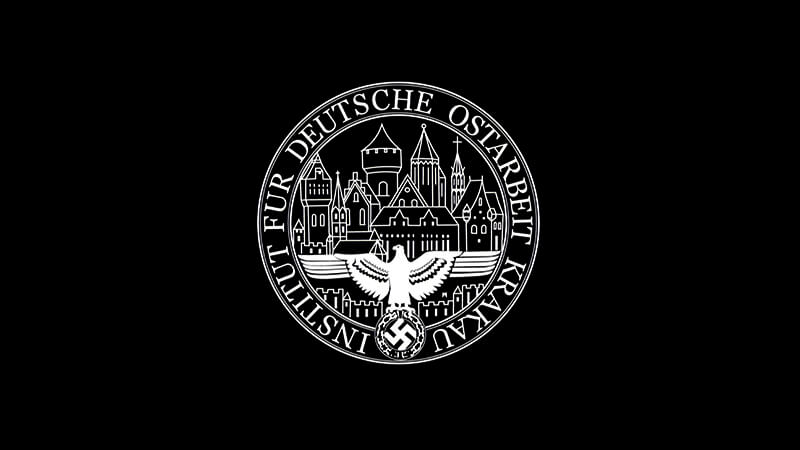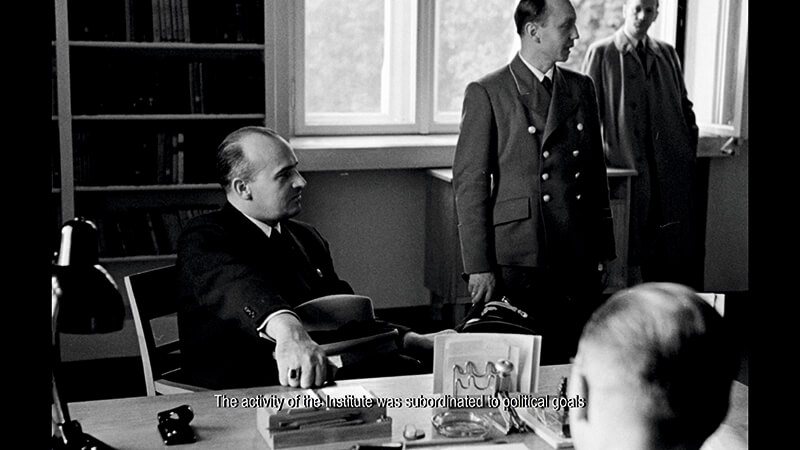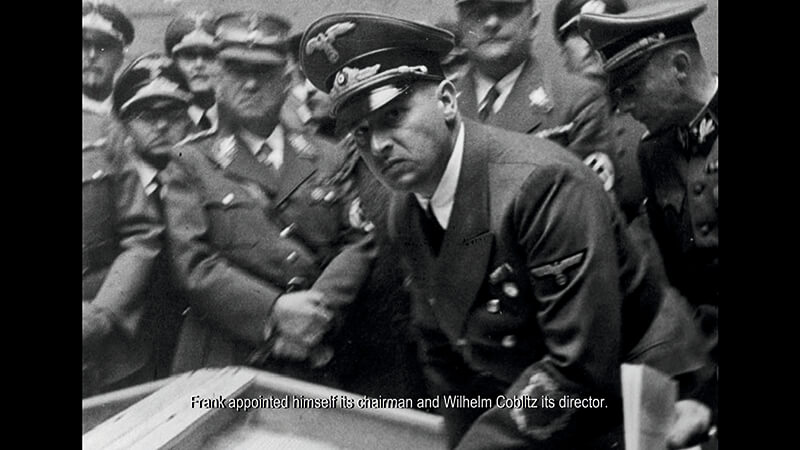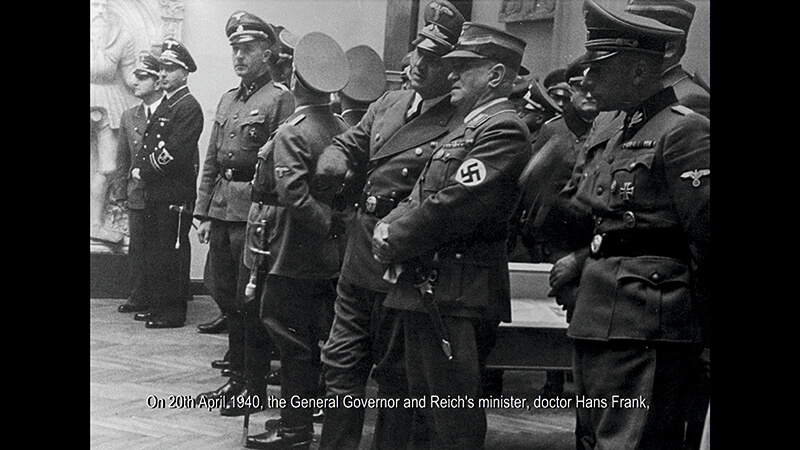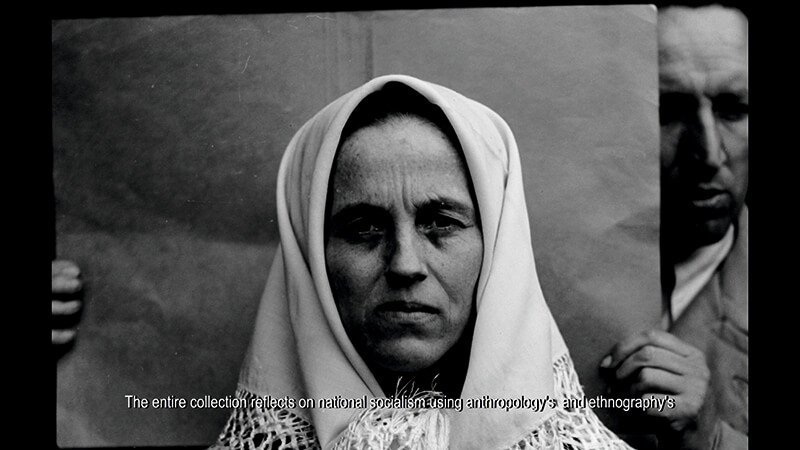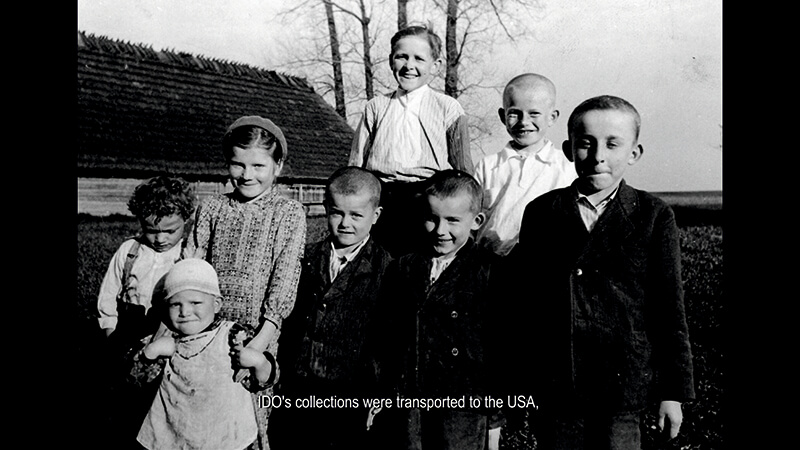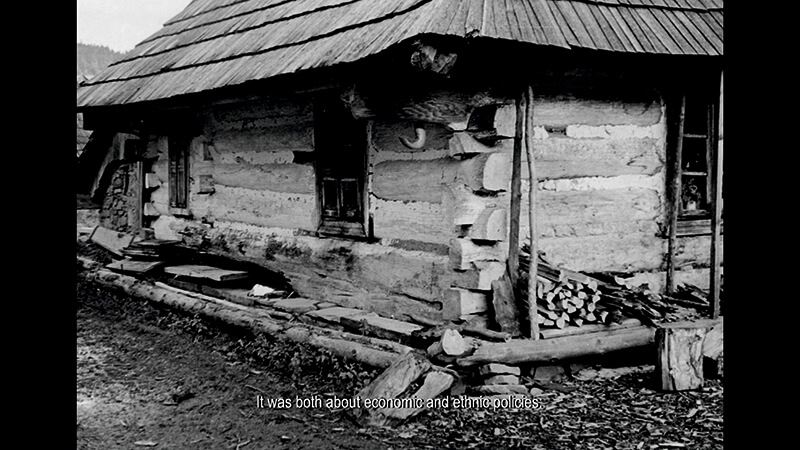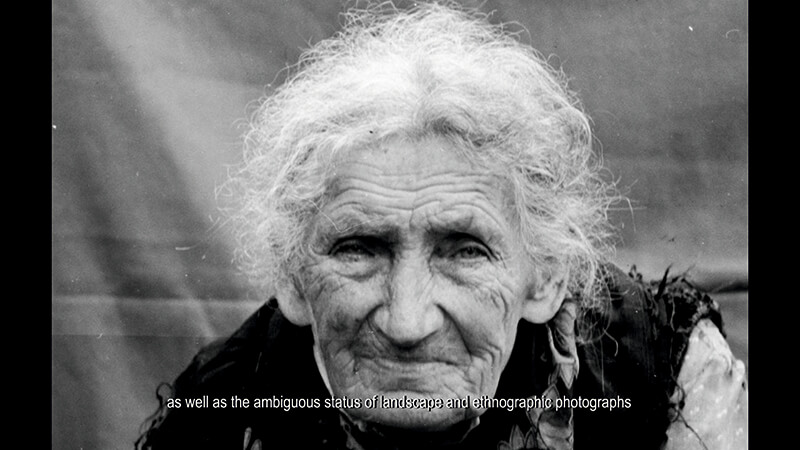Institut für Deutsche Ostarbeit
| title: |
Institut für Deutsche Ostarbeit |
| year: | 2017 |
| dimensions: | time: 8 min |
| technique: | film in black and white, with sound in Polish / English version |
| description: | In a synthetic way, through the text and visualization, the history of the uprising, activities and goals are recalled Institute of German Eastern Labor. Through the photographic archives created by the Third Reich in one of the oldest Polish scientific institutions, the author with the right courage presents facts and documentations transformed into an artistic formula of installations, photographs, graphics and objects. It is worth revising this little-known history card of World War II, which until 2008 remained outside of Polish resources. The entire IDO archive was hidden in Bavaria in 1945, and after being taken over by the Allied army
transported to Washington. The Smithsonian Institution was under the care there, where it was gradually digitized to constitute a collection of this institution. Its material and digitized form was transferred by the US government to Poland only 9 years ago, it went to the Institute of Ethnography and Cultural Anthropology and the Archives of the Jagiellonian University. This collection is not widely available, the topic is still painful for people affected by IDO activities in the present areas of Poland and Ukraine. Dorota Nieznalska invokes forgotten and touchy facts without controversy but in reference to the perspective of her own family, which she was subjected to forced displacement as part of the Vistula Action. It is just the 70th anniversary of the end of this pacifying and violent operation of the Polish army, often interpreted as an ethnic cleansing. / Małgorzata Zwolicka / |
© Dorota Nieznalska 2009-2023 | privacy policy
website implementation: Brandrei.com
